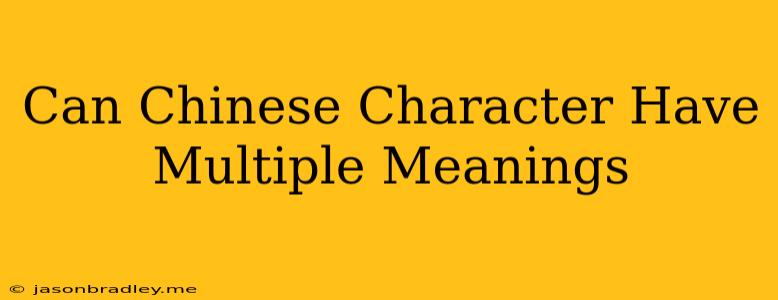Can Chinese Characters Have Multiple Meanings?
Yes, Chinese characters can have multiple meanings. This is due to the nature of the writing system, which uses logographic characters to represent words and concepts.
The Nature of Logographic Characters
Unlike alphabetic languages, where letters represent individual sounds, Chinese characters are ideograms. This means they represent a whole concept rather than just a sound. For example, the character "日" (rì) can represent the concept of "sun" or "day."
This system allows for multiple meanings because a single character can be used in different contexts to represent different, but related, concepts.
Examples of Characters with Multiple Meanings
Here are some examples of Chinese characters with multiple meanings:
- "走" (zǒu): This character can mean "to walk," "to go," "to run," or "to leave."
- "好" (hǎo): This character can mean "good," "well," "nice," or "kind."
- "看" (kàn): This character can mean "to look," "to see," "to watch," or "to read."
Context is Key
The meaning of a Chinese character is often determined by context. This can be the surrounding characters in a sentence, the tone of voice used, or the situation in which the character is used.
For example, the character "走" (zǒu) can mean "to walk" in the phrase "走路" (zǒu lù), which means "to walk on the road," but it can mean "to leave" in the phrase "离开" (lí kāi), which means "to leave."
Multiple Meanings Can Be Confusing
For learners of Chinese, the fact that characters can have multiple meanings can be confusing. However, it is important to remember that context is key and that with practice, you will become more familiar with the different meanings of each character.
The Beauty of Polysemy
While the multiple meanings of Chinese characters can be a challenge for learners, they also contribute to the richness and complexity of the Chinese language. The ability of a single character to represent multiple related concepts allows for a greater degree of nuance and expression that is not possible in alphabetic languages.
